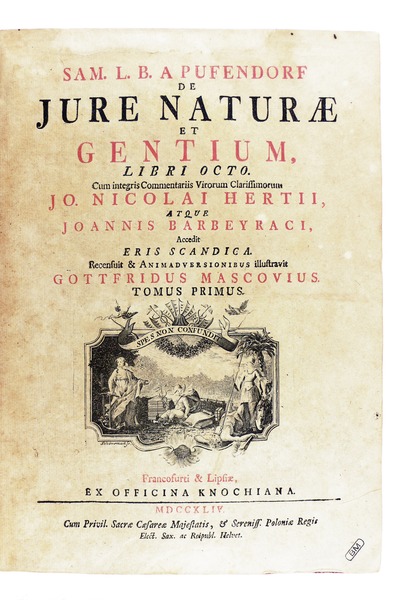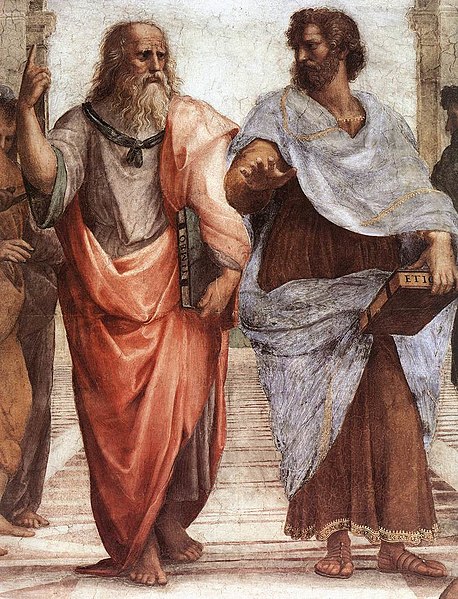Samuel Freiherr von Pufendorf was a German jurist, political philosopher, economist and historian. He was born Samuel Pufendorf and ennobled in 1694; he was made a baron by Charles XI of Sweden a few months before his death at age 62. Among his achievements are his commentaries and revisions of the natural law theories of Thomas Hobbes and Hugo Grotius.
Engraving by Joseph de Montalegre of Samuel von Pufendorf, 1706
Statue of Pufendorf on the Palais Universitaire, Strasbourg, France.
De officio hominis et civis juxta legem naturalem, 1758
De jure naturae et gentium, 1744.
Natural law is a system of law based on a close observation of natural order and human nature, from which values, thought by the proponents of this concept to be intrinsic to human nature, can be deduced and applied independently of positive law. According to the theory of law called jusnaturalism, all people have inherent rights, conferred not by act of legislation but by "God, nature, or reason." Natural law theory can also refer to "theories of ethics, theories of politics, theories of civil law, and theories of religious morality."
Plato (left) and Aristotle (right), a detail of The School of Athens, a fresco by Raphael
Marcus Tullius Cicero
Thomas Hobbes







